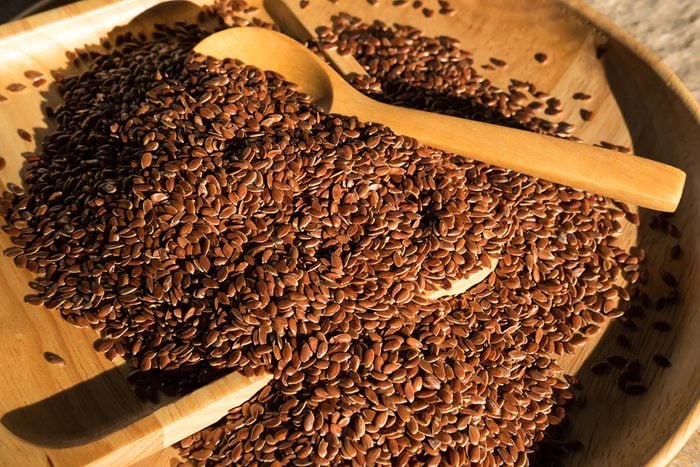
Flaxseed
Flaxseed not only offers fiber, which is essential for a healthy digestive system, but it also offers fats that you need in your gallbladder diet.”Ground flaxseed makes an excellent fiber supplement and can be added to cereal, smoothies, and juices to increase fiber intake,” says Will Bulsiewicz, MD, a gastroenterologist in Mount Pleasant, South Carolina. (One tablespoon of ground flaxseed contains about two grams of dietary fiber.) “As an added benefit, you get healthy, gallbladder-friendly fats in the form of plant-based omega 3s,” he says. (Here are other proven ways to boost your fiber intake). Women should aim for 25 grams of fiber per day, while men should aim for 38 grams (or 21 and 30 grams daily, respectively, for those older than 50), according to the Institute of Medicine.
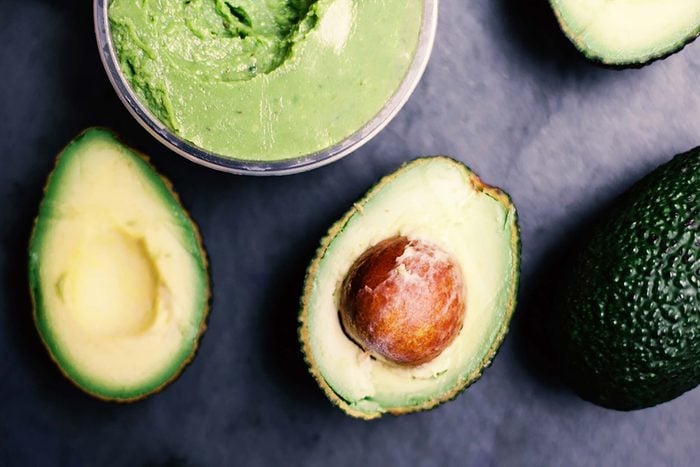
Avocados
When it comes to potassium-rich foods, avocados rank high for a gallbladder diet. “This is a superfood that is rich in healthy fats and very high in potassium,” says Carrie Burrows, PhD, a nutrition scientist in Orlando, FL. “Potassium is an essential nutrient for fluid and electrolyte balance that keeps us hydrated.” Most of us are chronically dehydrated, which leads to a number of health issues including gallstones, she says: “Gallstones form when bile is too thick, so being hydrated helps keep bile at the right consistency so you can prevent the formation of gallstones.” Gallstones may also form if bile contains too much cholesterol or too much bilirubin. Include sliced avocados with your lunchtime salad or add them to your morning toast.
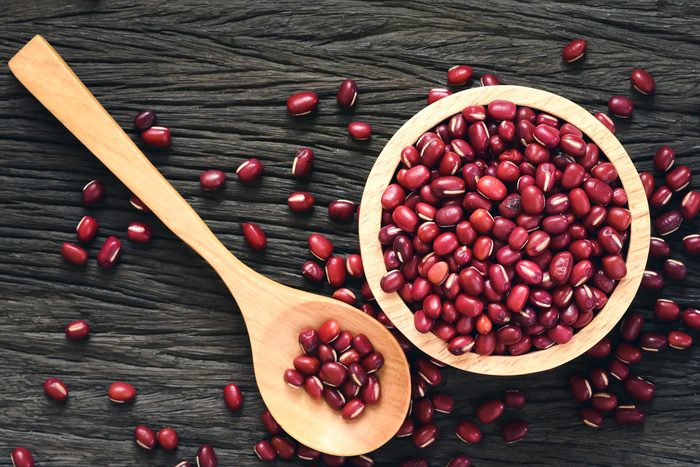
Beans
There are many health benefits of beans, so it’s no surprise that they’re a gallbladder diet all-star. “A meal high in fat stimulates more bile release,” explains Sheila Reddy, MD, a gastroenterologist with Austin Gastroenterology in Austin, Texas. “When there is too much fat or cholesterol in your diet, it can crystallize in the bile and form gallstones.” Cutting back on meats and focusing instead on eating a plant-based diet can improve cholesterol levels and help reduce the risk of developing gallstones, she says. “Plant-based proteins like beans, lentils, and tofu are excellent replacements for fatty red meat, one of the major culprits of gallbladder inflammation,” adds Dr. Bulsiewicz.
If you need more suggestions, these are the healthiest plant-based proteins you can eat. Prevention is key, but each year about 600,000 people undergo gallbladder removal surgery (cholecystectomy), and this changes the game a bit, says Dr. Bulsiewicz. There is no gallbladder removal diet but “fatty foods such as fried foods, cheese, ice cream, and meat should be consumed in moderation after cholecystectomy. Without a gallbladder, you cannot adequately digest fat and, as result, get malabsorption and diarrhea,” he says.
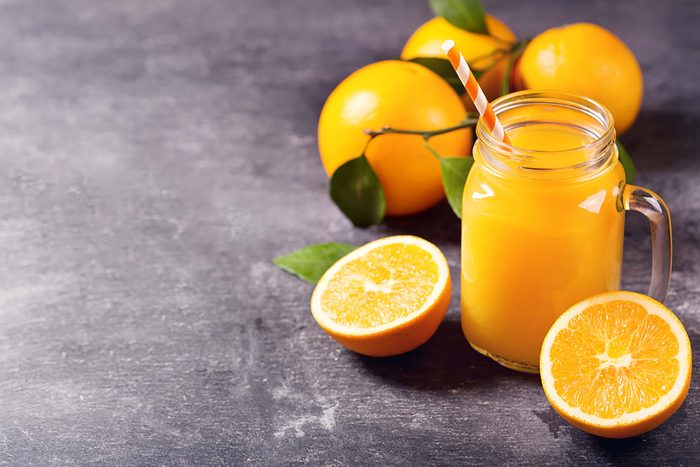
Oranges
Oranges are one of the healthiest fruits for your body. “Vitamin C-rich foods like citrus fruits and berries are another great choice for a healthy gallbladder,” says Dr. Bulsiewicz. “Studies have shown that Vitamin C may have a preventative effect against gallstones.” In fact, a review in 2015 in the World Journal of Gastroenterology noted that some research indicates consuming vitamin C supplementation can cut risk of gallstones nearly in half. And oranges aren’t the only C-rich food either. Check out these foods that pack more vitamin C than oranges.
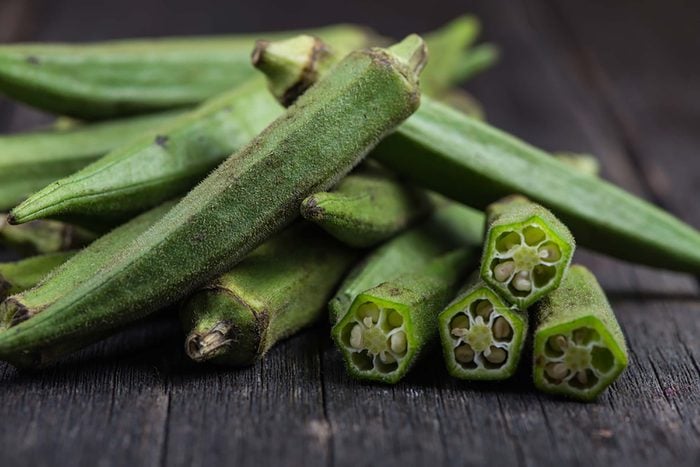
Bitter greens
Bitter greens may be one of those healthy vegetables you never knew you liked—and they’re great for setting up healthy fat digestion. “Eating bitter foods like okra, endives, broccoli rabe, and bitter artichoke before fatty foods will stimulate bile production,” explains Tara Nayak, a naturopathic doctor in Philadelphia, PA. “When the gallbladder doesn’t produce enough bile or when its release is blocked, symptoms occur.”
“Bitter is better,” adds David Friedman, a clinical nutritionist and alternative medicine practitioner in Wilmington, NC, and the author of Food Sanity:How to Eat in a World of Fads and Fiction. Other bitters include arugula, leeks, kale, dill, dandelion greens, parsley, and pickled ginger. “Bitter foods act to stimulate digestive juices and healthy bile production [and] the more bitter, the stronger the digestive action created; from the first taste, bitters induce the flow of juices in your mouth, which is the very start of the digestive process,” he says. Find out how to start liking more of the veggies you think you hate.
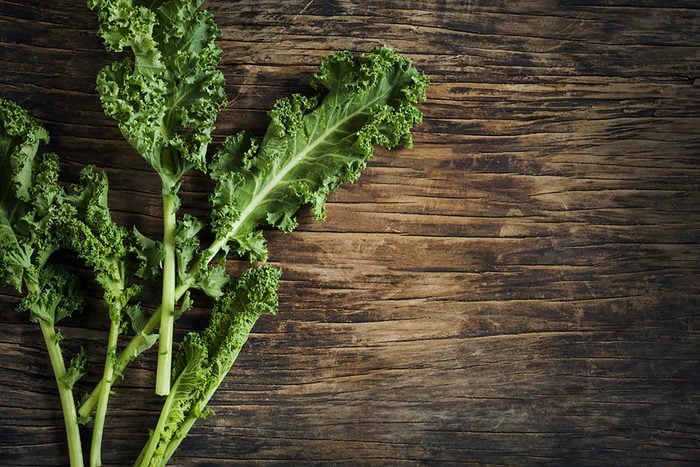
Dark, leafy greens
Dark leafy greens—think spinach and broccoli—are loaded with magnesium, which has a role to play in any gallbladder diet, Nayak says. This is important because many gallstones contain calcium. “Magnesium helps us clear calcium so it doesn’t build up and form gallstones,” she says. Pumpkin seeds are also rich in magnesium, she adds. These are the signs you may not be getting enough magnesium.
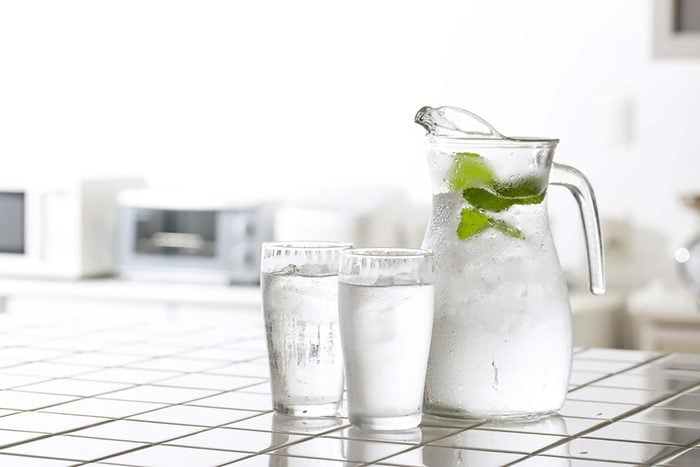
Water
Staying hydrated is important for many aspects of health and well-being. In case you needed more proof that you should be drinking more water, gallbladder function is on that list. “Water is needed for all secretions in the body including bile, so you want to stay hydrated,” Nayak says.
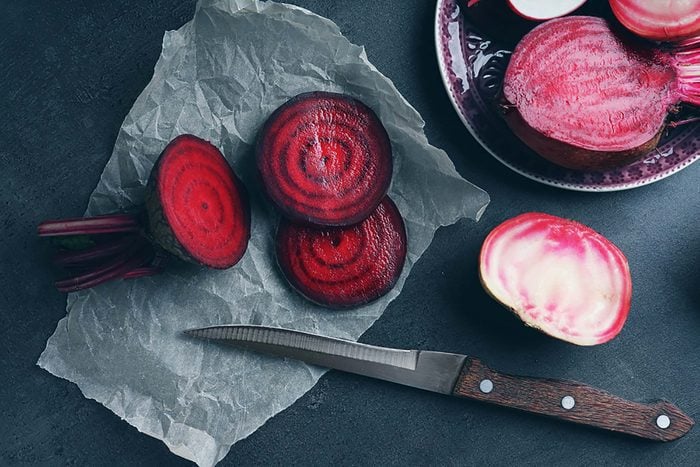
Beets
Here’s one of the health benefits of beets you never knew: Beets contain betaine, a substance that helps protect the liver and stimulate the flow of bile to break down fat. This is why they should be a staple in a gallbladder diet. “Drink beet juice, beet soup, or even add beets to a smoothie to get the benefits,” Nayak says. Find out the health secrets your gut is trying to tell you.

Sauerkraut
We hear a lot about the importance of keeping our gut bacteria in balance because when the bad bugs outnumber good ones, it can cause a host of symptoms including some that affect the gallbladder. “Keeping the gut balanced will reduce the need for bile and take pressure off the gallbladder,” Nayak says. Probiotic-filled foods including fermented foods such as miso, sauerkraut, kombucha and tepache can help restore this balance and have a role in a healthy gallbladder diet. Although you might think yogurt is a good source of probiotics, it’s not necessary a friend to the gallbladder. “Yogurt with active cultures can irritate the stomach, so it’s best to avoid dairy for gallbladder health,” Nayak adds. But a nutritious diet isn’t the only health concern for this organ. Next, find out the gallbladder cancer symptoms to never ignore.

